1. Introduction to Infographics and Data Visualization
1.1. Audience
1.1.1. primarily journalists/marketers
1.2. Instructor-organized resources
1.2.1. readings
1.2.2. lectures
1.2.3. tutorials
1.2.4. quizzes
1.3. Participant-organized resources
1.3.1. sharable online file storage
1.3.2. visualization software
2. Power Searching with Google
2.1. Audience
2.1.1. all internet users
2.2. Instructor-organized resources
2.2.1. lectures
2.2.2. quizzes
2.3. Participant-organized resources
2.3.1. Google Account
3. What have I learned so far?
3.1. You decide how much you want to get out of the class which in turn determines how you engage
3.2. Engagement depends on your personal learning environment (PLE / tools) and your personal learning network (PLN / people).
3.2.1. If the class twitter stream is redundant and populated by strangers, then you may eschew Twitter as a venue for class discussion
3.2.2. If you hate the class software, you probably won't interact with it much
3.2.3. If you have friends/colleagues also enrolled, it will probably help to create a local study group.
3.2.4. On the other hand, if all you want out of the course is the assigned readings and lectures, then you needn't do anything else.
3.3. Quality of content varies a lot.
3.3.1. I was appalled by suggested search method in a lesson in the Google MOOC. I know it was a terrible idea because I'm an experienced searcher. How would a student who isn't be able to tell?
4. often free
4.1. sometimes charge for certificate of completion
5. not yet considered for credit at universities
6. Current & Future Higher Education
6.1. Audience
6.1.1. all internet users
6.2. Instructor-organized resources
6.2.1. Class website
6.2.1.1. readings
6.2.1.2. lectures
6.2.1.3. discussion forum
6.2.2. Diigo Social Bookmarking Group
6.2.3. Twitter hashtag #CFHE12
6.3. Participant-organized resources
6.3.1. CCMOOC
6.3.1.1. informally related to CFHE12
6.3.1.2. UMN Participants
6.3.1.3. Google Group
6.3.1.4. WordPress Blog
6.3.1.5. Shared Evernote Notebook
6.3.2. Blog to reflect on class
6.3.3. Twitter account (optional)
6.3.4. Diigo account (optional)
6.4. Assignments
6.4.1. reflect via blog
6.4.1.1. or other open venue like shared Evernote
6.4.2. create mindmap (optional)

